UConn Health's 73 PAs span specialties to deliver both inpatient and outpatient care
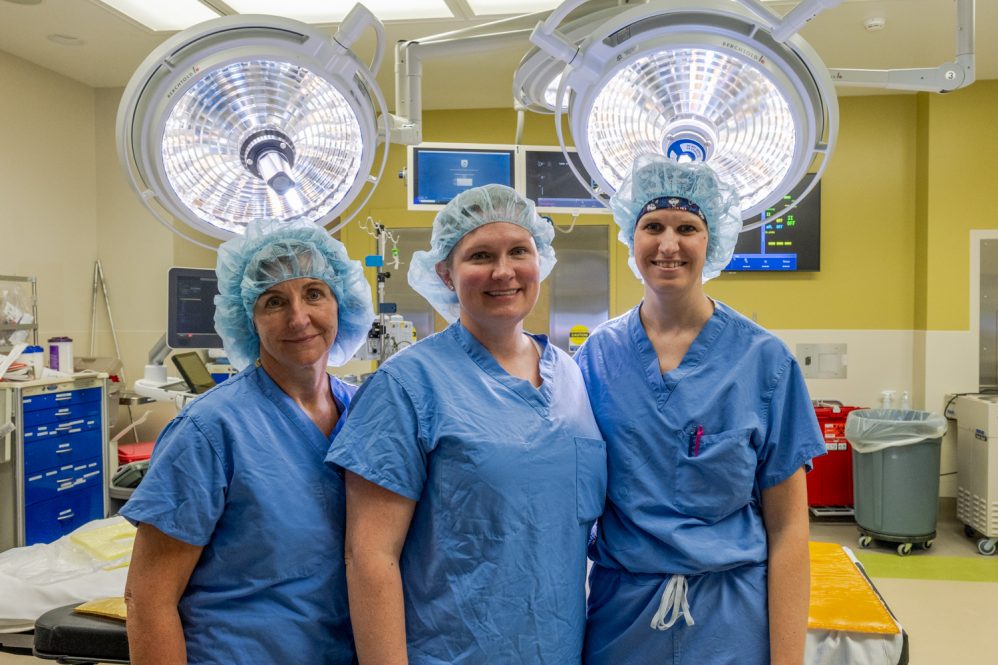
From left: UConn Health physician assistants Irene Cordilico, Martha Grajewski, and Alex Shaw are often involved in surgical cases in the operating room. (Tina Encarnacion/UConn Health Photo)
While it may be easy for patients to misunderstand the role of physician assistants, those who work with PAs are well aware how integral they are to care teams across many specialties.
"They're our backbone," says Karen Curley, senior director of nursing, who oversees UConn Health's operating room.
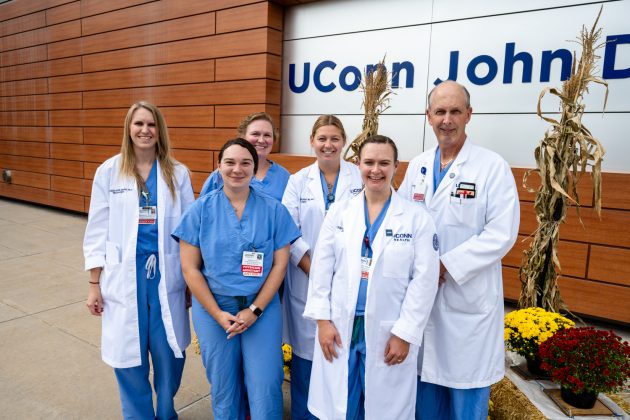
"A good PA in the OR is invaluable," says Rosemary Swanke, UConn Health's program director of advance practice staff.
UConn Health employs 73 physician assistants throughout both the inpatient and outpatient enterprises; 40 of them are credentialed to work in the OR, which has seen an upward trend in volume as the effects of the COVID-19 pandemic have subsided.
Their title can sound misleading, as if they are assistants to physicians. But see them in action in and you're likely to draw a different conclusion.
I'm able to connect with patients and get them feeling better on one of their potentially worst days. — Martha Grajewski
"Many of the PAs at John Dempsey Hospital work as first assist in the OR in a variety of specialty areas, including neurosurgery, general surgery, orthopedics, pulmonary/oncology, and thoracic surgery," Swanke says. "The PAs working in the OR are highly skilled in advanced intra-operative techniques. They are very familiar with our surgeons and the specialized techniques used in the OR. They are able to anticipate the next step in the procedure and assist the surgeon, significantly improving the efficiency of each operative case."
"First assist" refers to a surgical role that is performed intraoperatively with the surgeon. Knowledge of the procedure, anatomy, surgical equipment and technical skills are required of a proficient first assist. This role complements the surgeon by providing exposure, suturing, anticipating the needs of the surgeon, and clear communication with the operative team.
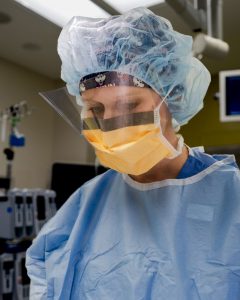
Alex Shaw, lead PA for neurosurgery, describes a typical day on the job.
"If I am covering inpatient or the operating room, I'm rounding on patients and then discussing plans with the attending neurosurgeon, potentially going into the operating room, completing tasks such as discharges, consults, admissions, bedside procedures such as drain removals, and completing any other floor tasks requiring provider follow-up or assessment," Shaw says.
Both Shaw and Martha Grajewski, lead PA for general surgery, have been in their lead roles for the last three years, and with that comes additional responsibilities beyond clinical, such as scheduling, hiring, orienting, and educating.
They normally work three shifts per week of 12 to 14 hours, rotating through days, nights, weekends, and holidays. Grajewski describes a typical day shift in general surgery.
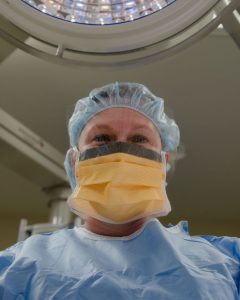
"We start rounding on our admitted patients at 6 a.m.," Grajewski says. "Following rounds, patients are discussed with attendings and we sign out the plans to our team, who will execute the patient's plans for the day. This can include procedures, discharges, orders, reviewing imaging, or updating patients and their families on progress. Our OR cases start at 7:30. Each day is different and may include covering cases in the OR, completing consults, providing postoperative care or bedside procedures."
Physician assistants are licensed clinicians who undergo rigorous training. They can prescribe medications, manage acute and chronic diseases, and perform bedside procedures in addition to first assisting in the OR.
"The neurosurgery advanced practice providers under the exemplary leadership of Alex Shaw are truly exceptional colleagues in helping optimize patient care in the inpatient, outpatient, and OR settings," says Dr. Ketan Bulsara, chief of UConn Health's Division of Neurosurgery. "The physician assistants provide a unique perspective given their training background."
Shaw has been a PA for eight years, all at UConn Health, starting in general surgery, and now in her fifth year in neurosurgery.
"Here at UConn Health, I have had the opportunity to work with some amazing PA and APRN teammates," she says. "The attending physicians and colleagues I work with as well have greatly contributed to further learning that I may not have received at another institution."
Grajewski has been a physician assistant for 20 years, the last 13 at UConn Health, entirely in general surgery. She oversees the inpatient PAs covering general surgery, vascular surgery, plastic surgery, thoracic surgery and trauma/emergency general surgery.
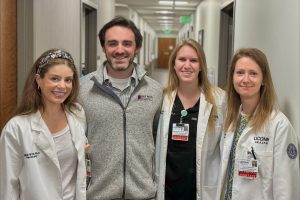
"Martha expertly handles multiple administrative tasks and scheduling issues while supporting a diverse clinical service," says Dr. Brian Shames, chief of UConn Health's General Surgery Division. "Her clinical skills are exceptional and she is a mentor for all of the young PAs on our service. She is an incredible team member, and I cannot imagine our service without her."
Grajewski enjoys the team aspect of her job, working with, among others, attendings, residents, medical students, and nurses on the hospital floors to achieve the best patient outcomes. And that's what she finds rewarding about being a physician assistant.
"I'm able to connect with patients and get them feeling better on one of their potentially worst days," Grajewski says.
"Every day, we can see the positive impact we make on patients' lives," Shaw says.
Swanke points out that UConn Health has PAs working at high levels of expertise beyond the OR.
"Many are very skilled at performing procedures outside the OR in the ICU, on the hospital units, in clinic and in the ED," she says. "Some of the physician assistants work in the clinics, seeing patients preoperatively and postoperatively in addition to assisting in the OR. They have many roles and areas of expertise throughout the hospital."
National Physician Assistant Week is Oct. 6-12.






